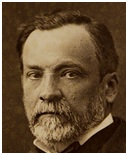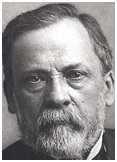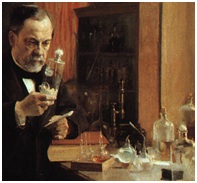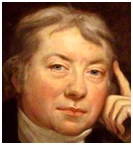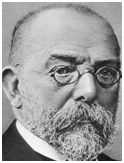|
 |
|
 |
|
|
||
Louis Pasteur - Creativity and Science
Louis Pasteur (1822-95)
French scientist (pictured right), who:
Why was he so creative? 1. Purpose and religion Pasteur (pictured right in 1895) believed in:
2. Passion Pasteur was totally enthusiastic about his work. He described the discovery of an important scientific fact as: “one of the keenest joys of which the human soul is capable”.
3. Determination and experimentation He was:
Pasteur is pictured right in his laboratory in Albert Edelfelt's 1885 painting. His years of experiments confirmed that disease was spread by germs or viruses that revolutionized healthcare through:
He developed the first vaccine for rabies through the injection of a weakened form of the rabies virus. He thought that problems were not insurmountable, but could be overcome by observing the facts. “Never make any assertion which cannot be simply and decisively proved”, he said.
4. Continual learning Pasteur:
“In the field of experimentation, chance favours only the prepared mind”, he
said. He also learned from other scientists, particularly:
Pasteur strongly supported the sharing of knowledge with them. “Knowledge belongs to humanity” he also said, and “science has no country”. 5. Imagination and intuition He thought imagination and intuition were vital to creative thinking, but they must always be checked and approved by facts learned from experiments. So he tested his intuition that germs must cause diseases after discovering that they caused fermentation.
6. Risk taker Pasteur first used his rabies vaccine on a nine-year-old boy, even though he could have faced prosecution as an unlicensed physician. But he took the risk and saved the boy’s life.
7. Critical scrutiny Pasteur questioned anything before it was either rejected or proved by fact.
Key quotes on science Science has no country, because knowledge belongs to humanity. Never make any assertion which cannot be simply and decisively proved.
Key quotes on creativity In the field of experimentation, chance favours only the prepared mind. My strength lies solely in my tenacity. It is surmounting difficulties that makes heroes.
Key quote on wisdom A bottle of wine contains more philosophy than all the books in the world. |
|
|
||
|
|
||
| Copyright © wisdomtowin.com 2025 All Rights Reserved | ||
|


